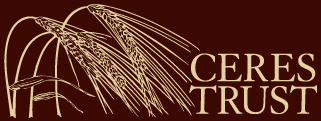Implementation of novel grafting methods and rootstocks for organic tomato growers in the Midwest
Graduate Student Final Report – Ceres Trust Research Grant
Graduate Student: Sarah Masterson
Major Professor: Dr. Gary Rivard
View/Download Full Report in PDF Format
Summary:
Although it is a burgeoning area of research in the United States, vegetable grafting has been shown to be an effective organic technique to combat soil-borne diseases, such as verticillium wilt, bacterial wilt, and root-knot nematodes. However, the current dearth of research and technology in the United States prevents small-acreage growers from buying grafted plants domestically, as most are produced in specialized nurseries in Canada and Asia. In addition to the cost of international shipping, research shows that the grafting process can create $0.75 of added cost per plant. This issue illustrates the necessity of further research and extension that develops grafting methods suitable for small and organic growers as well novel methods of grafting that increase the success and reduces the cost of propagating grafted transplants.
Throughout 2011 Dr. Gary Rivard and Sarah Masterson sought to address these issues. Their project – to be concluded in the spring of 2013 – intends to improve organic farming systems by utilizing host resistance/tolerance to soilborne plant pathogens where previously none were available, particularly for growers that utilize heirloom cultivars. This project furthermore seeks to make organic systems more productive and profitable by reducing disease epidemics in organic tomato production systems and testing for yield increases due to added vigor of inter- specific rootstocks.Field trials performed in 2011 established several research trials at commercial and university farms. Experimental treatments consisting of non-grafted plants and grafted plants (‘Maxifort’ and ‘Trooper’ rootstocks) propagated with two tube grafting techniques (the traditional method and the “topping” method). The researchers aimed to determine the effect of this new technique on fruit yield, detrimental or otherwise. Fruit yield was collected and recorded weekly throughout the summer of 2011; biomass samples were harvested and measured attheconclusionofthegrowingseason. Theinitialreplicationofthisprojectconducted throughout 2011 yields interesting preliminary results.
Additionally, several trials designed to observe the effect of different rootstock varieties upon fruit yield were set up in Wichita and Manhattan, KS. Unfortunately, excessive heat and high variability in yield compromised any statistical analysis at these sites. Replication trials have been established for the 2012 year of data collection with more hope for success.
